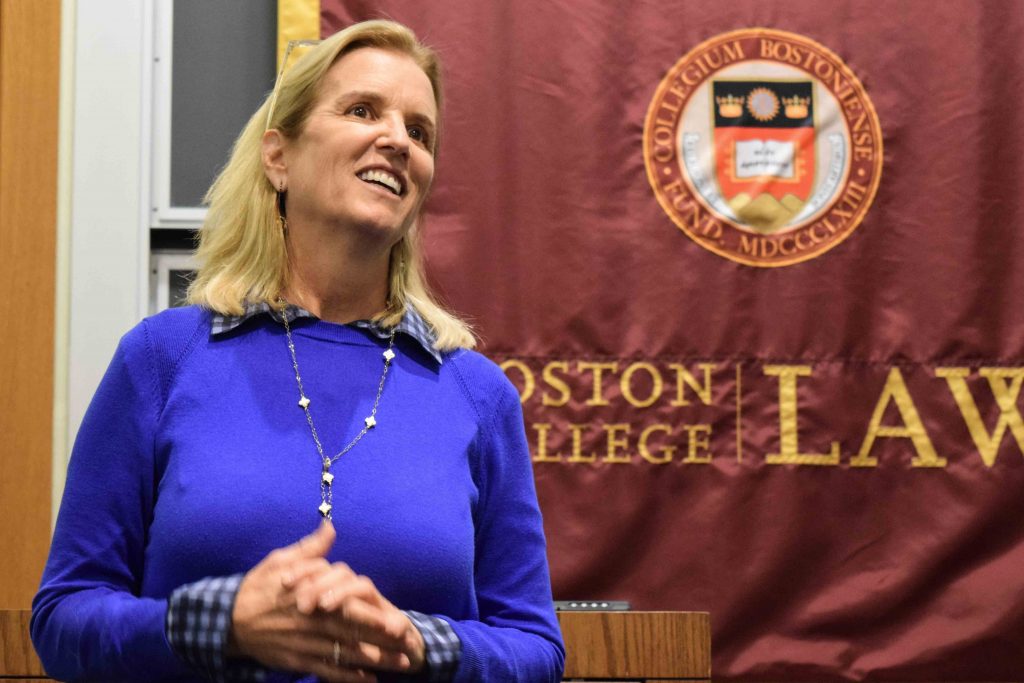As a young volunteer with Amnesty International, Kerry Kennedy documented abuse against refugees fleeing El Salvador for the United States and developed an immediate appreciation for the human rights lawyers volunteering alongside her. “They weren’t getting paid, and they all had law school debt, but they were committed to the law and to the belief that our country should stand for our most treasured values,” Kennedy remembered. “I wanted to go to be a lawyer and go to a school that was seriously, deeply committed to social justice.”
Since graduating from Boston College Law School in 1987, Kennedy has dedicated her career to human rights, and she returned to campus to present the annual Holocaust/Human Rights Project Owen M. Kupferschmid Lecture on April 12.
In an emotional speech peppered with memories from her father’s tenure as Attorney General during the civil rights movement and his presidential campaign, Kennedy highlighted four programs she oversees as president of Robert F. Kennedy Human Rights.
First, Kennedy spoke about the litigation and advocacy program that sues governments committing human rights abuses, and was instrumental in overturning a Ugandan law criminalizing homosexuality, and in combating femicide in Guatemala.
Next, Kennedy highlighted the Compass program, which combats human rights abuses in private industry by engaging business leaders and investors. “Half of the largest 100 economies on Earth are corporations,” Kennedy said, “so if you’re really interested in human rights, but you’re only holding governments accountable, you’re going to miss a big chunk of the problem.” Reflecting on their work after the Upper Big Branch (West Virginia) Mine disaster in 2010, Kennedy noted the role public and private investors can play in creating change. “We convene investors twice a year, and discuss how human rights abuses are factors they need take into consideration when investing.”
Kennedy also championed the Speak Truth to Power education program, which incorporates human rights lessons and activities into existing curricula from kindergarten through law school and has had an impact on more than 5 million students around the world.
Finally, Kennedy discussed a program that celebrates her father’s legacy by inspiring young leaders to continue his life’s work today. Reflecting on her father’s Indianapolis speech on the evening Martin Luther King Jr. was assassinated, and the role it played in preventing violence in the city when 150 other major urban areas rioted, Kennedy renewed his call for peace and empathy.
Thanking professors who inspired her to take on human rights issues, Kennedy urged students in the audience to continue the work. “Learn how to use your legal education to make a difference in peoples’ lives, and to strengthen the country, because we really need it,” she said.
The Owen M. Kupferschmid Holocaust/Human Rights Project is named after its founder, a 1986 Boston College Law School graduate. Launched in 1984, the project’s goal is to ensure that the precedential value of Holocaust-related law is fully realized and applied to state-sponsored human rights violations today.


